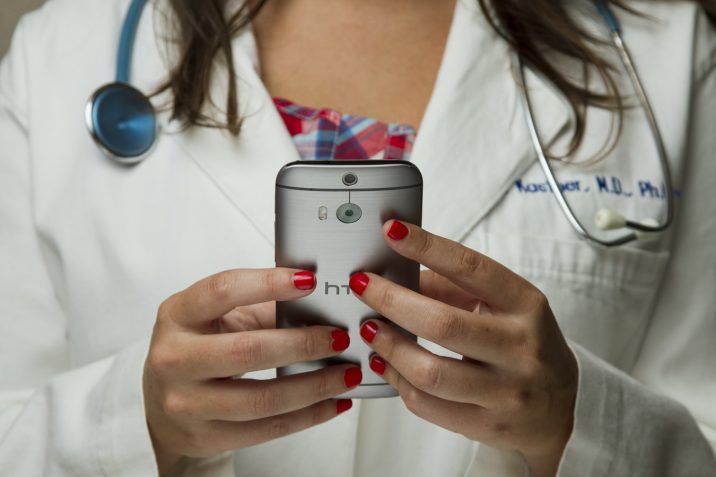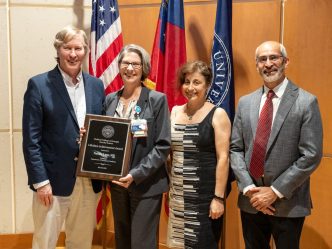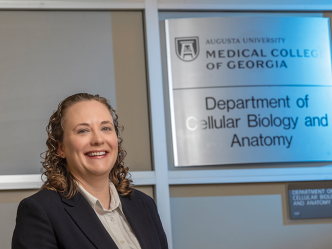The Federal Communications Commission has awarded a $710,316 grant to Augusta University Medical Center to support the facility’s virtual care efforts. Since May, this is the second FCC grant awarded to Augusta University Health, bringing the total of funding to $824,060.
The grant will be used to expand the medical center’s telemedicine work in the ambulatory and acute care settings, as well as offer medical support to long-term care facilities, including rehabilitation centers and nursing homes.
“Augusta University Health is honored to receive this grant from the Federal Communications Commission, and the funding provides us with the needed resources to expand our telehealth efforts to serve patients across Georgia,” said Augusta University President Brooks A. Keel, PhD. “AU Health received strong support from our federal delegation in Washington, D.C., and I would like to thank Sens. David Perdue and Kelly Loeffler as well as Reps. Rick Allen, Buddy Carter and Jody Hice for their continued support and assistance with the FCC throughout the process.”
With the funding, the medical center will purchase telemedicine carts that will be connected to laptops with web cameras to reduce the number of health care workers entering the rooms of patients with COVID-19 and other acute care needs. There will also be designated carts stationed in long-term care facilities and rehabilitation centers to connect with patients unable to come to the medical center.
Additionally, the health care facility will purchase iPads so patients can connect with family members unable to visit them, and the medical center will continue the America Well Telemedicine platform to perform outpatient virtual visits.
“COVID-19 has changed the scope of health care, and telehealth is a vital tool in our efforts in delivering the proper treatment to our patients,” said AU Health Chief Innovation Officer Mallary Myers. “As we prepare for the future, we are thankful to have this grant from the FCC because it gives us new possibilities to connect with our patients where they need services, while keeping our health care workers safe.”
In May, the FCC gave a $113,744 grant to AU Health to expanded its portable ultrasound program to screen patients for respiratory and cardiovascular symptoms related to COVID-19 before being admitted into the hospital.
With the funding, AU Health purchased nine telemedicine ultrasound systems from Philips that can peer into the lungs and hearts of patients to check for signs of pneumonia and even heart failure. The portable, painless ultrasound devices will be part of the bedside evaluations in the emergency department, intensive care units and in the health system’s EMS response vehicles.
“We are grateful to receive this grant from the FCC, because it helps us to meet the growing demand of prescreening patients for COVID-19, whether it’s at the scene of an accident or in our medical center,” said Dr. Matthew Lyon, director of the Center for Ultrasound Education in the Medical College of Georgia at Augusta University. “Although we have larger ultrasound machines, they are not practical to use in the field, and it takes more people to use them. With these additional telemedicine devices, we can reduce the number of health care workers in a patient’s room and be even more efficient in providing quality care to our patients.”
As a state leader in the pandemic response, AU Health has made strides in using telemedicine to treat patients with COVID-19. More than 20,000 screenings were conducted via AU Health’s ExpressCare App during the height of the pandemic.
Additionally, AU Health has stayed ahead of the telehealth curve by anchoring Georgia’s first emergency telehealth network, launching a telehealth consultation service for couples struggling with infertility and helping to successfully establish REACH Health for stroke patients.
Get the latest news on AU Health’s work to slow the spread of COVID-19 by visiting the COVID-19 resource page.
 Augusta University
Augusta University




